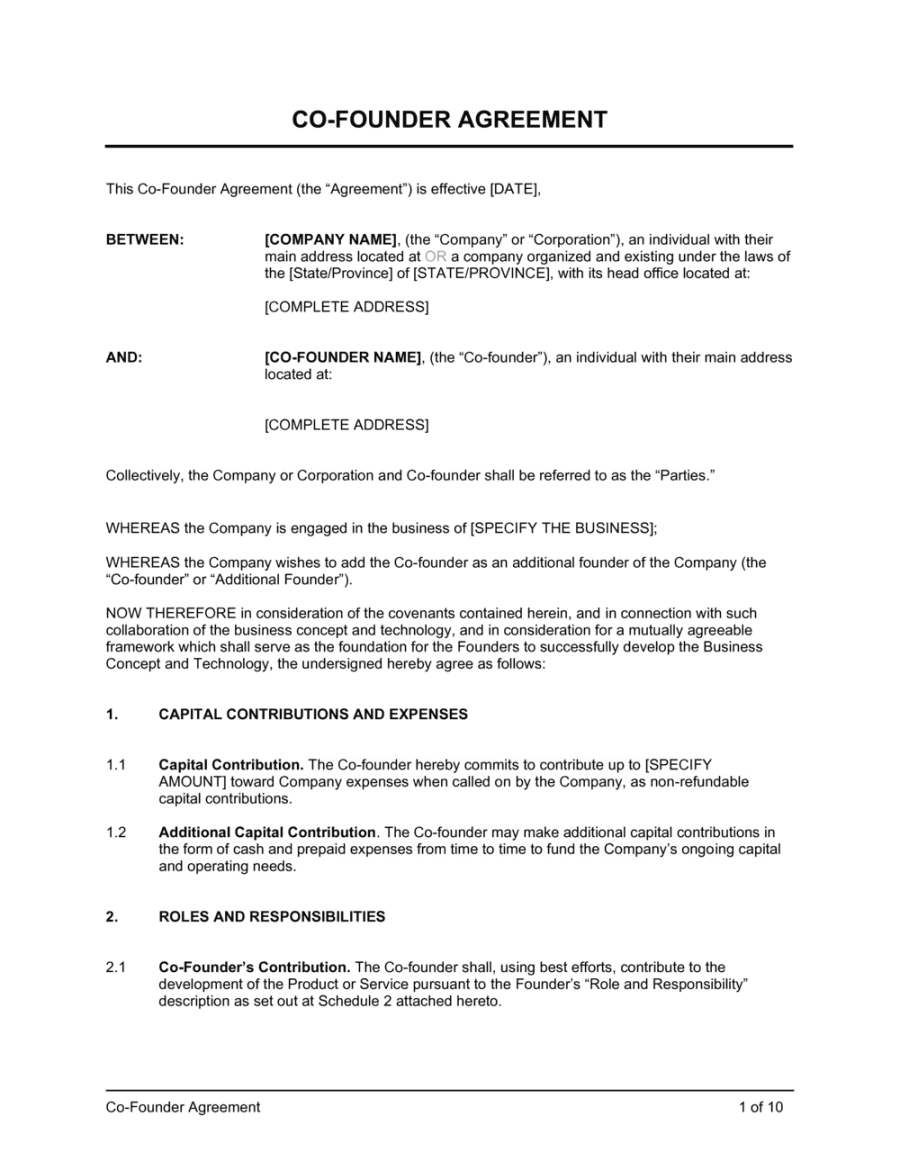A Startup Founders Agreement is a crucial legal document that outlines the rights, responsibilities, and ownership stakes of each founder within a newly formed company. A well-drafted agreement ensures clarity, minimizes potential disputes, and provides a solid foundation for the company’s growth.
Key Components of a Startup Founders Agreement
A comprehensive Startup Founders Agreement typically includes the following key components:

Image Source: business-in-a-box.com
1. Founder Identification and Roles
Clear Identification: Clearly identify each founder by name, contact information, and the specific role they will play in the company.
2. Intellectual Property Rights
Ownership: Clearly outline the ownership of intellectual property rights, such as patents, trademarks, and copyrights, created by the founders.
3. Capital Contributions and Ownership Dilution
Capital Contributions: Specify the amount of capital each founder will contribute to the company and the corresponding equity allocation.
4. Decision-Making and Management
Voting Rights: Define the voting rights of each founder, particularly in significant decisions like raising capital, hiring key personnel, or selling the company.
5. Exit Strategy
Exit Events: Consider potential exit events, such as an initial public offering (IPO) or a merger and acquisition (M&A).
Design Considerations for a Professional Agreement
While the content of the agreement is crucial, the design also plays a significant role in conveying professionalism and trust. Here are some design considerations:
Clean and Professional Layout: Use a clean and professional layout with clear headings and subheadings.
Conclusion
A well-crafted Startup Founders Agreement is essential for protecting the interests of all founders and ensuring the long-term success of the company. By carefully considering the key components and design elements outlined in this guide, you can create a professional and legally sound agreement that sets a strong foundation for your startup.
Remember, it is advisable to consult with an experienced attorney to ensure that your agreement complies with all relevant laws and regulations.